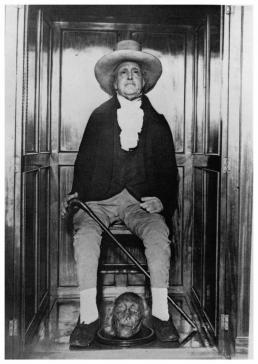Cathy Gere's project investigated the history of the science of pleasure and pain, from the aftermath of the French Revolution to the time of the Watergate scandal. The focus was on a distinctively Anglo-Saxon tradition of hedonistic psychology that Cathy Gere called "utilitarian neurology." Developed by British philosophers and reformers as a response to the challenge of French Revolutionary medicine, this cluster of notions combined legal, political, medical, biological, psychological, and physiological theories into a total, counter-revolutionary account of the human condition. The narrative traces the origins and development of utilitarian neurology, from Jeremy Bentham’s analysis of the "Springs of Action," to the neuroscientist David Ferrier’s utilitarian animal experiments of the 1870s and 1880s. By the end of the century, a network of men of science laboring in British hospitals, asylums, and universities had agreed on a vision of the human subject as an evolved mechanism of inputs and outputs, pleasures and pains, stimulus and response, susceptible to systematic experimental investigation. During the first decades of the twentieth century, this completely naturalized utilitarian neurology made its way across the Atlantic, where it was simplified and extended in the research tradition that went under the name of behaviorism.
The first and last chapters frame this nineteenth-century British history with a historical and philosophical analysis of the place of utilitarianism in the sweeping reforms of medical ethics that took place in the US in the 1970s. Over the course of that decade, the whole structure of medical practice and clinical research was reformed around the principle of informed consent, a moral edict in explicit opposition to utilitarianism. This new order shifted the burden of medical decision-making from the doctor to the patient and from the researcher to the research subject. The sovereign individual rather than the greater good became the unit of moral reasoning in medical research. Using the case of Robert Heath, a neuroscientist conducting electrical stimulation experiments on the neural "pain-pleasure circuits" of asylum inmates, the project aspired to clarify the scope and nature of the rejection of utilitarian reasoning in medical ethics in the Watergate period. Ultimately, the goal was to understand what lasting significance the informed consent mandate might have for medical, neurological, and scientific definitions of personhood.

